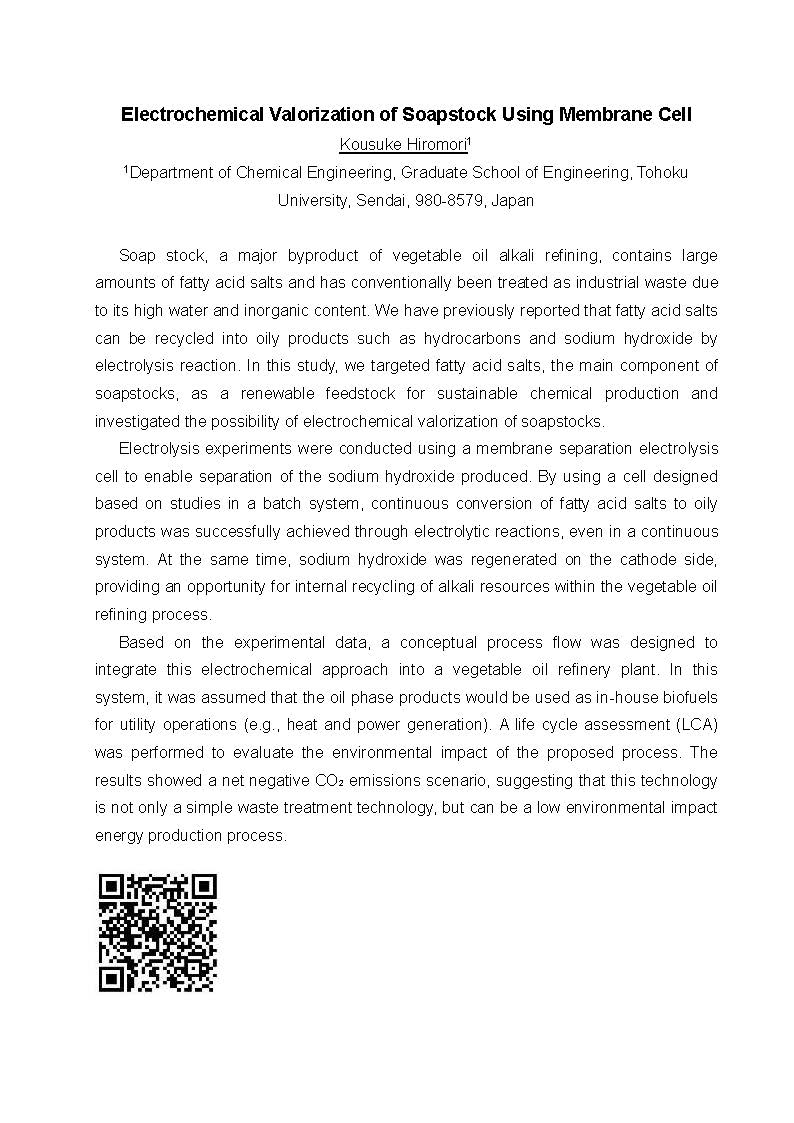Soap stock, a major byproduct of vegetable oil alkali refining, contains large amounts of fatty acid salts and has conventionally been treated as industrial waste due to its high water and inorganic content. We have previously reported that fatty acid salts can be recycled into oily products such as hydrocarbons and sodium hydroxide by electrolysis reaction. In this study, we targeted fatty acid salts, the main component of soapstocks, as a renewable feedstock for sustainable chemical production and investigated the possibility of electrochemical valorization of soapstocks.
Electrolysis experiments were conducted using a membrane separation electrolysis cell to enable separation of the sodium hydroxide produced. By using a cell designed based on studies in a batch system, continuous conversion of fatty acid salts to oily products was successfully achieved through electrolytic reactions, even in a continuous system. At the same time, sodium hydroxide was regenerated on the cathode side, providing an opportunity for internal recycling of alkali resources within the vegetable oil refining process.
Based on the experimental data, a conceptual process flow was designed to integrate this electrochemical approach into a vegetable oil refinery plant. In this system, it was assumed that the oil phase products would be used as in-house biofuels for utility operations (e.g., heat and power generation). A life cycle assessment (LCA) was performed to evaluate the environmental impact of the proposed process. The results showed a net negative CO₂ emissions scenario, suggesting that this technology is not only a simple waste treatment technology, but can be a low environmental impact energy production process.
